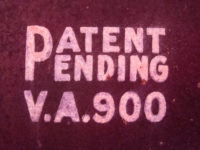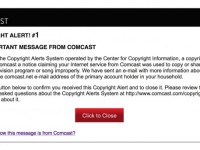The Canadian government’s Bill C-86, its Budget Implementation Act, features several notable provisions designed to curb intellectual property misuse. I posted yesterday on the rejection of “harmonized” statutory damages with the copyright collective system and new limits on the content of notices under the copyright notice-and-notice rules, with the government banning the inclusion of settlement demands or other requests for payment. Internet providers that receive notices that do not comply with the requirements will not be required to forward them to their subscribers. The bill also takes on patent misuse, including rolling out a framework for regulating patent demand letters in an effort to stop patent trolling.
Post Tagged with: "misuse"
Copyright Misuse Emerges as a Political Issue: QP Questions on Notice-and-Notice Abuse
The problems associated with Canada’s copyright notice-and-notice system have been well chronicled. The Canadian system – which was acknowledged as equivalent to the U.S. notice-and-takedown approach in the TPP – allows rights holders to send notifications alleging infringement to intermediaries who are obligated to forward the notifications to their subscribers. The intermediary does not disclose the identity of the subscriber and it falls to the rights holder to pursue further action if they so choose. Unfortunately, the failure to include regulations stipulating what may be included in a forwarded notice has led to rampant misuse of the system, with anti-piracy companies sending millions of notifications that include demands for payments over unproven allegations.
The need to fix the notice-and-notice system should be a 2017 Copyright Act review priority, though the solution lies in adopting regulations that do not require a legislative overhaul. The issue is attracting increasing attention and made its way onto the floor of the House of Commons this week as NDP MP Brian Masse directly asked Prime Minister Justin Trudeau about it:
Records Indicate Government Misusing Crown Copyright
As Industry Minister Jim Prentice prepares to introduce new copyright legislation, crown copyright is unlikely to be part of the reform package. My weekly technology law column (Toronto Star version, homepage version) notes that according to documents obtained under the Access to Information Act, there may be a disturbing reason behind the government's reluctance to address it – crown copyright costs Canadians hundreds of thousands of dollars while being used as a tool to suppress public criticism of government programs.
Dating back to the 1700s, crown copyright reflects a centuries-old perspective that the government ought to control the public's ability to use official documents. Today crown copyright extends for fifty years from creation and it requires anyone who wants to use or republish a government report, parliamentary hearing, or other work to first seek permission. While permission is often granted, it is not automatic. The Canadian approach stands in sharp contrast to the situation in the U.S. where the federal government does not hold copyright over work created by an officer or employee as part of that person's official duties. Government reports, court cases, and Congressional transcripts can therefore be freely used and published.
The existence of crown copyright affects both the print and audio-visual worlds and is increasingly viewed as a barrier to Canadian film making, political advocacy, and educational publishing.
Records Indicate Government Misusing Crown Copyright
Appeared in the Toronto Star on May 12, 2008 as Crown Copyright is Overdue for Retirement As Industry Minister Jim Prentice prepares to introduce new copyright legislation, crown copyright is unlikely to be part of the reform package. According to documents obtained under the Access to Information Act, there may […]
Supreme Court Stops Use of Copyright to Block Parallel Imports
The Supreme Court of Canada released its decision in the Euro-Excellence v. Kraft Foods case this morning, overturning the lower court decisions to find that the Copyright Act could not be used to block the parallel importation of Toblerone and Cote D'Or chocolates from Europe into Canada (I attended the SCC hearing and commented here). Kraft Canada tried to use copyright law to block the imports, arguing that while the chocolates were legit, the inclusion of the image of the mountain on the Toblerone bar involved an infringement of copyright.
The decision will take some time to unpack as, unusually for this court, it includes written reasons from four justices. In a nutshell, seven members of the court (Abella and McLachlin dissented) ruled that the Copyright Act could not be used to block the parallel imports for two different reasons. This represents an important finding as the court took a clear stand against the claim by Kraft Canada that it could use copyright to block the parallel imports. In doing so, one block of the court limits its decision to statutory interpretation of the Copyright Act, while a second block establishes a new copyright doctrine that suggests that the Copyright Act only protects "legitimate economic interests." In reading the decision, there is the sense that the court was uncomfortable with the use of copyright here, yet split on whether to adopt a conservative approach that relies solely on the text of the Act or to more aggressively interpret the Act to include the legitimate economic interest doctrine.








